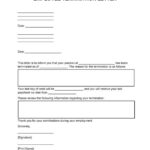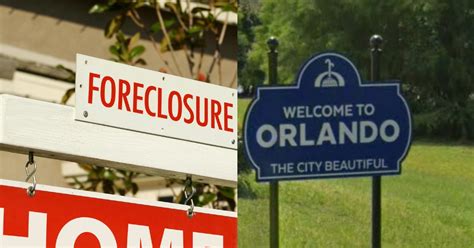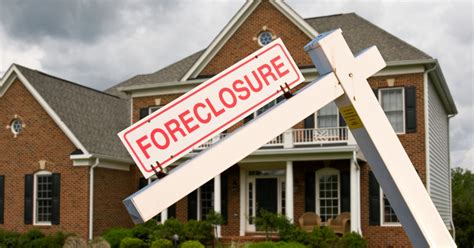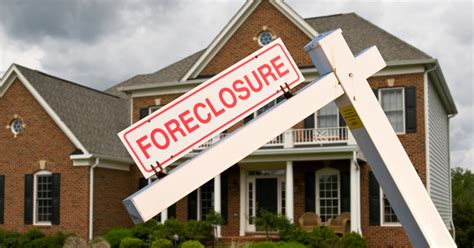
A heated confrontation with a neighbor derailed a recent home showing in Oklahoma, leaving prospective buyers furious and the seller in dismay. The disruptive outburst, which included shouting and accusations, has jeopardized the sale and raised questions about property values and neighborhood disputes.
The incident, which occurred during a scheduled showing, involved a neighbor who confronted the potential buyers with a barrage of complaints, according to a recent report. “The neighbor proceeded to interrupt the showing by yelling,” detailed the original account, creating an immediate and uncomfortable atmosphere that ultimately led to the buyers leaving the property.
The seller is now grappling with the fallout from the neighbor’s actions, which have not only disrupted the sale process but also potentially damaged the home’s reputation and market value. Real estate experts suggest such incidents can significantly impact buyer interest and offer prices.
The Anatomy of a Disrupted Showing
The details surrounding the disruption paint a vivid picture of the chaos that unfolded. As potential buyers toured the property, the neighbor allegedly approached them, launching into a tirade of grievances. While the specifics of the complaints remain somewhat vague, reports suggest they involved issues related to property lines, noise levels, and general neighborhood disputes.
“Buyers ‘livid,’ seller reeling” is how the situation was described, underscoring the emotional and financial stakes involved. The prospective buyers, understandably upset by the unexpected confrontation, cut short their viewing and left the premises, signaling a significant setback for the seller.
The incident raises several pertinent questions about the responsibilities of neighbors, the legal recourse available to sellers, and the broader impact of neighborhood disputes on real estate transactions. Experts emphasize the importance of clear communication and conflict resolution in maintaining harmonious neighborhood relations and protecting property values.
Legal and Financial Implications
The ramifications of such a disruption extend beyond mere inconvenience. Depending on the nature of the neighbor’s actions, the seller may have grounds for legal action, including claims for nuisance, interference with a business transaction, or defamation.
“The seller is now grappling with the fallout,” as noted, which includes potential financial losses due to a delayed or canceled sale. Real estate professionals advise sellers to document all instances of disruptive behavior and seek legal counsel to explore their options.
Furthermore, the incident highlights the importance of disclosure in real estate transactions. Sellers are often required to disclose any known issues that could materially affect a buyer’s decision, including ongoing disputes with neighbors. Failure to disclose such information could lead to legal liabilities down the road.
The Ripple Effect on Property Values
Neighborhood disputes can have a significant and lasting impact on property values. Buyers are often hesitant to purchase a home in an area known for conflicts or animosity, fearing that they will become embroiled in similar issues.
Real estate agents often advise their clients to research the neighborhood thoroughly before making an offer, including talking to current residents and reviewing local records for any reported disputes. A history of neighborhood problems can deter potential buyers and drive down offer prices.
In this particular case, the neighbor’s outburst has undoubtedly cast a shadow over the property, making it more difficult to attract qualified buyers and secure a favorable sale price. The seller may need to take proactive steps to address the underlying issues and reassure potential buyers that the neighborhood is safe and welcoming.
Strategies for Conflict Resolution
While some neighborhood disputes escalate into legal battles, many can be resolved through effective communication and conflict resolution strategies. Mediation, for example, offers a neutral forum for neighbors to discuss their concerns and work towards mutually agreeable solutions.
Community associations and homeowner’s associations (HOAs) often play a role in mediating disputes and enforcing neighborhood rules. These organizations can provide a framework for addressing complaints and resolving conflicts in a fair and impartial manner.
In some cases, simply talking to the neighbor and expressing concerns in a calm and respectful manner can be enough to de-escalate tensions and find common ground. However, it’s important to approach such conversations with caution and avoid any actions that could be construed as confrontational or threatening.
The Importance of Due Diligence
For potential buyers, the incident serves as a reminder of the importance of conducting thorough due diligence before purchasing a property. This includes not only inspecting the physical condition of the home but also researching the neighborhood and talking to current residents.
Buyers should also review local records for any reported disputes or legal actions involving the property or its neighbors. A title search can reveal any easements, liens, or other encumbrances that could affect the property’s value or enjoyment.
Furthermore, buyers should consider visiting the property at different times of day and on different days of the week to get a sense of the neighborhood’s atmosphere and activity levels. This can help identify any potential issues, such as noise complaints or parking problems.
Expert Opinions and Recommendations
Real estate experts emphasize the importance of addressing neighborhood disputes proactively to protect property values and maintain a positive community environment. They recommend that sellers disclose any known issues to potential buyers and work with a real estate agent to develop a strategy for mitigating the impact of the dispute.
“The seller is now grappling with the fallout,” as noted, and may need to consider offering incentives, such as a price reduction or a home warranty, to attract buyers who may be hesitant due to the neighbor’s behavior.
Experts also advise buyers to carefully weigh the pros and cons of purchasing a property in an area known for disputes. While a lower price may be tempting, the potential for ongoing conflict and stress could outweigh the financial benefits.
Preventative Measures
Preventing neighborhood disputes from escalating into major problems requires a proactive approach and a commitment to open communication. Neighbors should strive to communicate their concerns in a respectful and constructive manner, and be willing to compromise to find mutually agreeable solutions.
Community associations and HOAs can play a valuable role in fostering positive neighborhood relations by organizing social events, promoting community involvement, and enforcing neighborhood rules fairly and consistently.
Furthermore, local governments can provide resources and support for conflict resolution, such as mediation services and community policing programs. These initiatives can help address underlying issues and prevent disputes from escalating into legal battles.
The Role of Social Media
In today’s digital age, social media can play a significant role in shaping perceptions of neighborhoods and properties. Negative reviews or comments about a property or its neighbors can quickly spread online, potentially damaging its reputation and deterring potential buyers.
Sellers should be aware of their online presence and take steps to address any negative comments or reviews in a professional and constructive manner. They should also encourage satisfied residents to share positive feedback about the neighborhood to counteract any negative perceptions.
Furthermore, buyers should be cautious about relying solely on social media reviews when researching a property or neighborhood. While online reviews can provide valuable insights, they should be considered in conjunction with other sources of information, such as local records and personal observations.
Long-Term Solutions
Addressing the underlying causes of neighborhood disputes often requires long-term solutions that involve collaboration between residents, community associations, and local governments. These solutions may include improving communication, enhancing community engagement, and enforcing neighborhood rules fairly and consistently.
In some cases, it may be necessary to address underlying issues such as poverty, crime, or lack of access to resources. These issues can contribute to tensions and conflicts within neighborhoods, and addressing them requires a comprehensive and coordinated approach.
Ultimately, creating a positive and harmonious neighborhood environment requires a commitment from all stakeholders to work together towards common goals. This includes fostering open communication, promoting community involvement, and addressing underlying issues that can contribute to disputes and conflicts.
The Seller’s Perspective
The seller in this case is undoubtedly facing a challenging situation. The neighbor’s outburst has not only disrupted the sale process but also potentially damaged the property’s reputation and market value.
The seller may need to take proactive steps to address the underlying issues and reassure potential buyers that the neighborhood is safe and welcoming. This could include offering incentives, such as a price reduction or a home warranty, or working with a real estate agent to develop a strategy for mitigating the impact of the dispute.
The seller should also consider seeking legal counsel to explore their options for holding the neighbor accountable for their actions. Depending on the nature of the neighbor’s behavior, the seller may have grounds for legal action, including claims for nuisance, interference with a business transaction, or defamation.
The Buyer’s Perspective
Potential buyers who witnessed the neighbor’s outburst are likely to be hesitant about purchasing the property. They may be concerned about the potential for ongoing conflict and stress, and may question the overall quality of life in the neighborhood.
Buyers should carefully weigh the pros and cons of purchasing the property, taking into account the potential for future disputes and the impact on their peace of mind. They should also consider whether they are willing to take on the responsibility of resolving the underlying issues and fostering positive relations with the neighbors.
Ultimately, the decision to purchase the property will depend on the buyer’s individual circumstances and risk tolerance. However, it’s important to conduct thorough due diligence and carefully consider the potential implications of the neighbor’s behavior before making a final decision.
The Neighbor’s Perspective (Hypothetical)
While the news report focuses on the impact of the neighbor’s actions on the seller and potential buyers, it’s important to consider the neighbor’s perspective as well. While the report doesn’t elaborate, it’s safe to assume the neighbor was likely motivated by a perceived grievance or concern about the property or its occupants.
Perhaps the neighbor felt that their concerns had been ignored or dismissed in the past, leading them to take drastic action during the home showing. Or perhaps they had a legitimate complaint about the property that had not been addressed, such as noise levels or property line disputes.
Whatever the reason, the neighbor’s actions highlight the importance of addressing concerns proactively and seeking constructive solutions to neighborhood disputes. Open communication and a willingness to compromise can often prevent such situations from escalating into major problems.
Conclusion
The incident involving the disruptive neighbor serves as a cautionary tale for both sellers and buyers. It underscores the importance of addressing neighborhood disputes proactively, conducting thorough due diligence, and seeking constructive solutions to conflicts.
By fostering open communication, promoting community involvement, and addressing underlying issues, residents can create a positive and harmonious neighborhood environment that benefits everyone. And by taking proactive steps to protect their property values and maintain a positive reputation, sellers can minimize the risk of similar incidents and ensure a successful sale.
This event also highlights the unpredictable nature of real estate transactions and the importance of being prepared for unforeseen challenges. While it’s impossible to control the actions of others, sellers and buyers can take steps to mitigate the impact of such incidents and protect their interests.
The Oklahoma incident should serve as a reminder that a home is more than just a building; it’s also a part of a community. And a healthy community requires open communication, mutual respect, and a willingness to work together to address common challenges.
Frequently Asked Questions (FAQ):
1. What legal recourse does the seller have against the neighbor who disrupted the home showing?
The seller may have several potential legal avenues, depending on the specifics of the neighbor’s actions. These could include:
- Nuisance: If the neighbor’s behavior was unreasonable and interfered with the seller’s use and enjoyment of their property. To prove nuisance, the seller would generally need to show that the neighbor’s actions were substantial and unreasonable, and that they caused the seller significant harm.
- Interference with a Business Transaction: If the neighbor intentionally interfered with the seller’s efforts to sell the property. To prove this claim, the seller would need to show that the neighbor knew about the pending sale, intentionally interfered with it, and that the interference caused the sale to fall through or resulted in financial damages.
- Defamation: If the neighbor made false and defamatory statements about the seller or the property that damaged the seller’s reputation. To prove defamation, the seller would need to show that the neighbor made a false statement of fact, that the statement was published to a third party, and that the statement caused the seller harm.
- Trespass: If the neighbor entered the seller’s property without permission.
The specific laws and requirements for these claims vary by jurisdiction, so the seller should consult with an attorney to determine the best course of action. The attorney can assess the facts of the case, advise the seller on their legal options, and represent them in court if necessary. Documenting the neighbor’s behavior, including dates, times, specific statements, and any witnesses, will be crucial for any potential legal action.
2. How can a seller prevent similar incidents from happening during future showings?
To mitigate the risk of future disruptions, the seller can take several proactive steps:
- Communicate with Neighbors: Before scheduling showings, consider informing neighbors of the upcoming showings. This can help prevent misunderstandings and provide an opportunity for neighbors to address any concerns they may have privately.
- Work with a Real Estate Agent: A real estate agent can act as a buffer between the seller and the neighbors, handling communications and addressing any issues that may arise. The agent can also be present during showings to manage the situation if a neighbor attempts to interfere.
- Obtain a Restraining Order: If the neighbor has a history of disruptive behavior, consider obtaining a restraining order to prevent them from approaching the property during showings. This may require providing evidence of past harassment or threats.
- Security Measures: If the seller is concerned about their safety or the security of the property, consider hiring security personnel to be present during showings.
- Document Everything: Keep a detailed record of any interactions with the neighbor, including dates, times, specific statements, and any witnesses. This documentation can be valuable if legal action becomes necessary.
- Consider a Pre-emptive Letter from an Attorney: If the situation warrants, a letter from an attorney to the neighbor outlining potential legal ramifications of interfering with the sale could deter future disruptions.
3. What are the seller’s disclosure obligations regarding neighborhood disputes?
Sellers generally have a legal obligation to disclose any known material defects or issues that could affect a buyer’s decision to purchase the property. Whether a neighborhood dispute must be disclosed depends on the specific laws in the jurisdiction and the nature and severity of the dispute.
Generally, a seller should disclose:
- Ongoing Disputes: Any ongoing disputes with neighbors, such as property line disputes, noise complaints, or harassment.
- Legal Actions: Any pending or past legal actions involving the property or its neighbors.
- HOA Violations: Any violations of homeowner’s association rules or regulations.
- Material Facts: Any other facts that could materially affect a buyer’s decision, such as a history of vandalism or criminal activity in the neighborhood.
Failure to disclose such information could lead to legal liabilities, such as breach of contract, fraud, or misrepresentation. The seller should consult with an attorney and a real estate agent to determine their specific disclosure obligations in their jurisdiction. It is generally better to err on the side of disclosure, providing buyers with as much information as possible to make an informed decision.
4. How can potential buyers assess the neighborhood climate before making an offer on a property?
Prospective buyers can take several steps to assess the neighborhood climate and identify any potential issues before making an offer:
- Talk to Current Residents: Engage in conversations with current residents to get their perspectives on the neighborhood. Ask about their experiences, any issues they have encountered, and their overall satisfaction with the area.
- Visit the Property at Different Times: Visit the property at different times of day and on different days of the week to get a sense of the neighborhood’s atmosphere and activity levels. This can help identify any potential issues, such as noise complaints or parking problems.
- Review Local Records: Review local records, such as police reports and court filings, to identify any reported disputes or legal actions involving the property or its neighbors.
- Attend Community Meetings: Attend community meetings or homeowner’s association meetings to learn about local issues and concerns.
- Check Social Media and Online Forums: Search for online forums or social media groups dedicated to the neighborhood to see what residents are saying about the area. However, be cautious about relying solely on online reviews, as they may be biased or inaccurate.
- Drive Around the Neighborhood: Drive around the neighborhood to observe the condition of the homes and yards, and to get a sense of the overall atmosphere.
- Consult with a Real Estate Agent: A local real estate agent can provide valuable insights into the neighborhood and alert buyers to any potential issues.
5. What resources are available for resolving neighborhood disputes?
There are several resources available for resolving neighborhood disputes, including:
- Mediation: Mediation offers a neutral forum for neighbors to discuss their concerns and work towards mutually agreeable solutions. A trained mediator can facilitate the discussion and help the parties reach a resolution.
- Community Associations and HOAs: Community associations and homeowner’s associations often play a role in mediating disputes and enforcing neighborhood rules. These organizations can provide a framework for addressing complaints and resolving conflicts in a fair and impartial manner.
- Local Government: Local governments may offer resources and support for conflict resolution, such as mediation services and community policing programs.
- Legal Aid: Legal aid organizations can provide free or low-cost legal assistance to residents who cannot afford to hire an attorney.
- Conflict Resolution Centers: Many communities have conflict resolution centers that offer mediation and other dispute resolution services.
- The Better Business Bureau (BBB): While primarily focused on business disputes, the BBB may offer resources or guidance for resolving disputes with neighbors who are operating businesses from their homes.
When seeking assistance, it’s important to choose a resource that is appropriate for the specific type of dispute and the needs of the parties involved. In some cases, a formal legal process may be necessary to resolve the dispute, while in other cases, mediation or other alternative dispute resolution methods may be more effective.









